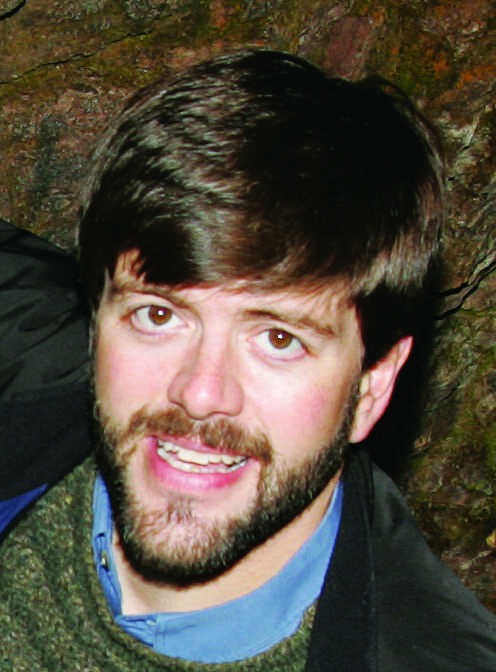NMU professor John Anderton passed away from medical complications Sunday, March 2 while cross-country skiing at the Marquette Fit Strip. Anderton was a teaching and research professor in the Earth, Environmental and Geographic Sciences (EEGS) department.

Anderton was renowned for his ability to spark passion in his students’ minds. This was due to his own passions and his energy, which he brought with him to the classroom daily.
Anderton had an avid love for the outdoors. Beyond skiing, he relished time spent hiking, cycling, camping and running. His fervency for being outside emanated into his academic work, including weekly class outings to gain hands-on experience in soils research.
Susy Ziegler, the head of the EEGS department, met Anderton in 1991 in graduate school.
“He was a model of what the department stood for,” Ziegler said. “I think it goes back to being an alumnus of the department. He wasn’t just a professor, he was a teacher. He knew how to tell a story.”
Being a “teacher,” not “just a professor” shows through the words his students have for him.
“He had a really good ability to connect with students,” senior Environmental Science major Parker Ameel said. “A lot of that came through in his joy for taking students into the field.”
Anderton was apt to humbly boast that students would call his Soils class “life changing,” with a sarcastic undertone. Ironically, students attest to that claim.
“His Soils class is probably the best class I’ve taken in that department and maybe at NMU,” Ameel said. “He made students look at the world around them differently, in a historical perspective. He made students think about how the landscape changes around them and he could articulate a vision for how the world could look different.”
A local, Anderton was born in 1964 at St. Luke’s Hospital in Marquette and went on to graduate from Northern in 1987. His time at NMU brought him closer to the soil—he participated in an archaeology dig in 1985, thus sending him on his chosen academic trajectory. From here, his focus eventually turned to Paleo-Indian archaeology in the Great Lakes region. He was apt to include the topic in his teaching to reveal the intersections of natural and cultural histories.
“He had a huge depth of knowledge about (the U.P.),” Ameel said.
Beyond academics, Anderton’s personality reinforced his popularity. Natalie Reider, a senior studying Environmental Studies and Sustainability, admired his jovial demeanor.
“Anderton had this fine-tuned, extra-dry sense of humor,” Reider said. “It was really special. If your attention strayed for even a second, you risked missing the highlight of your day.”
Teaching Soils at NMU allowed Anderton to demonstrate the ecological variations of dirt. He would regularly comment on the dismissive attitudes people have toward soil and then retort that humans would not be here were it not for soil, the skin of Earth. Grounding his work in soil’s importance and emphasizing its role in agriculture, architecture and even geo-politics, he showed students both the vitality and fragility of soil.
Anderton’s time at NMU is reflected in the impact he had on students like Ameel and Reider, a mere fraction of those affected. Students may view his photo in the University Center second floor, where he is depicted helping a student outside of the classroom. This photo reflects his accessibility and personable nature, indispensable qualities for a professor.
Ziegler has been affected by the compassion, much from across the nation, that has been shared with those close to Anderton.
“It’s amazing how much he touched students,” Ziegler said. “Hopefully after the shock and sadness wears off a little bit, people will be inspired to keep learning. We will move forward because we know he would want us to move forward.”
Reider’s words reflect the enthusiasm Anderton brought to class.
“He had a way of making even the monotony of lecture seem a little magical,” Reider said. “What a rare quality.”
























Jonathan • Mar 31, 2014 at 1:25 am
Professor Anderton was a true gem at NMU. I never thought about it that way, but he really did make class and the wonder and thirst for knowledge feel magical! Loved his classes and his excitement for learning. He will be missed. God bless his family. I will treasure the classes I took with Dr. Anderton always!
Martin • Mar 17, 2014 at 1:37 pm
Thank you for this article, articulating the impact Dr. Anderton had on my education. Prayers for his family.